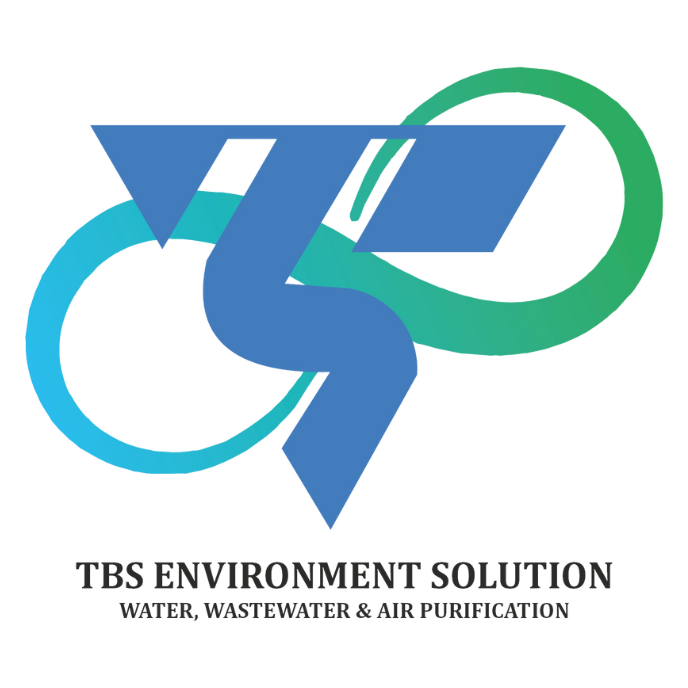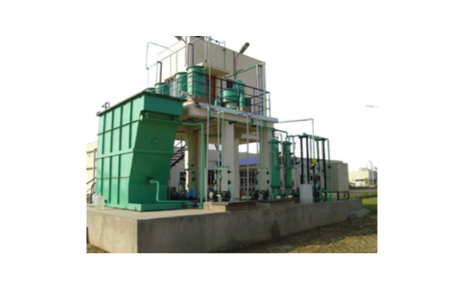Physico-Chemical
Effluent Treatment Plant
The Physico-Chemical Effluent Treatment Plant (ETP) is a widely used wastewater treatment system that combines physical and chemical processes to remove contaminants effectively. This method is commonly employed in industries with complex effluent compositions, such as chemicals, textiles, pharmaceuticals, and food processing. Below are its key benefits and advantages:

Effective Removal of a Wide Range of Contaminants
- Versatile Treatment: Removes suspended solids, oils, greases, heavy metals, and dissolved organic/inorganic pollutants.
- Efficient for Industrial Effluents: Ideal for treating effluents with complex or variable compositions.
- Color and Odor Removal: Effectively eliminates undesirable colors and odors from wastewater.
High Efficiency in Pollutant Reduction
- TSS and Turbidity Reduction: Achieves excellent removal of Total Suspended Solids (TSS) and turbidity through coagulation and flocculation.
- BOD and COD Reduction: Reduces Biological Oxygen Demand (BOD) and Chemical Oxygen Demand (COD), ensuring compliance with discharge regulations.
Flexible and Customizable Design
- Adaptable to Different Industries: Can be tailored to meet the specific effluent characteristics of industries like textiles, chemicals, mining, etc.
- Scalable Systems: Can be designed for small, medium, or large-scale operations, making it suitable for diverse applications.

Rapid Treatment Process
- Quick Results: The physico-chemical process works rapidly, with coagulation and sedimentation occurring within minutes.
- Short Retention Time: Reduces the overall time required for wastewater treatment.
Cost-Effective Solution
- Low Initial Cost: Generally more affordable to install compared to advanced biological or membrane-based systems.
- Reduced Energy Usage: Minimal power is required for operations like mixing and settling.
- Economic for High-Strength Effluents: Suitable for treating highly polluted wastewater, where biological systems may fail.
Easy to Operate and Maintain
- Simplified Operations: The process is straightforward and does not require highly skilled operators.
- Low Maintenance Requirements: Few moving parts and simple equipment lead to minimal maintenance.
Minimal Footprint
- Compact Design: Physico-chemical treatment systems require less space compared to some other treatment technologies, making them ideal for industries with limited land availability.
Sludge Management
- Manageable Sludge: Produces chemically stable sludge, which is easier to handle and dispose of compared to biological systems.
- Valuable By-Products: Sludge may contain recoverable materials like metals, depending on the industry.
Compliance with Environmental Standards
- Regulatory Compliance: Ensures treated effluent meets strict discharge norms for industries.
- Pre-Treatment Option: Often used as a pre-treatment step before biological or advanced processes in industries with stringent discharge standards.
Wide Range of Applications
- Industrial Wastewater: Ideal for industries like textiles, leather, pharmaceuticals, petrochemicals, and food processing.
- Municipal Wastewater: Suitable for urban wastewater treatment to remove suspended and dissolved contaminants.
- Mining and Metal Industries: Efficient in treating effluents containing heavy metals.
Reliable for Extreme Conditions
- Handles Variable Loads: Capable of treating wastewater with fluctuating flow rates and pollutant concentrations.
- Resilient to Toxic Pollutants: Performs well even when effluents contain substances that may inhibit biological processes.
Environmentally Friendly Options
- Optimized Chemical Usage: Advanced systems are designed to minimize chemical consumption, reducing secondary pollution.
- Reusability of Treated Water: Produces water that can be reused for non-potable applications, supporting sustainable water management.

